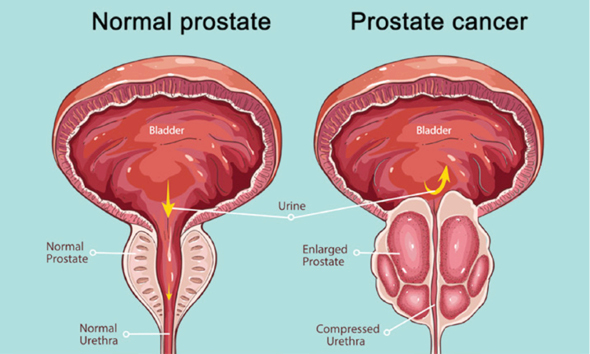Why you should know about prostate cancer
Cancers are a big burden, but prostate cancer is an even bigger burden for men. It is the second most commonly occurring cancer in men and the fourth most common cancer overall. Last year, there were an estimated 1.3 million new cases, according to the World Cancer Research Fund. This September, the 2019 Men Week […]

Cancers are a big burden, but prostate cancer is an even bigger burden for men. It is the second most commonly occurring cancer in men and the fourth most common cancer overall.
Last year, there were an estimated 1.3 million new cases, according to the World Cancer Research Fund.
This September, the 2019 Men Week of Prostate Cancer is focused on “fight and advocate” for rural men when it comes to prostate cancer.
“I can’t give you the exact number of people who had died of prostate cancer. But what we have known so far is that it is one of the most major causes of death among men, especially when they are above 40 years,” says Eugenia Ndukwe, founder of The International Care Community for All Race and Rural Environment Foundation (ICCAARRE).
“The percentage should be above 50 per cent because in Africa, poverty is our major problem and people will have to eat before they begin to talk about going to hospital for examination.”
ICCAARRE has started a campaign to educate men in rural locations and urban slums about the dangers of prostate cancer.
It focuses on indigents—especially street children in rural communities, the aged and poor.
For its campaign, it chose Karmo, a densely populated settlement in Nigeria’s capital.
“We chose this month of September, like it is being done all over the world, to come to these communities and educate the men on the need to take care of their health; understand what prostate cancer is all about and tell them how to come out with measures that they are not victims of prostate cancer,” said Ndukwe.
Nigeria is not among the top 20 countries with the highest prostate cancer rates, but it is not out of the woods either.
So, what is prostate cancer exactly? The prostate functions to produce the fluid that nourishes and transports sperm, secretes a hormone that helps semen retain its fluid state and also aids urine control.
The cancer beegins in the prostate gland, which sits between the penis and the bladder.
There are often no symptoms during the early stages of prostate cancer, but screening can detect changes that can indicate cancer.
There are often no symptoms during the early stages of prostate cancer, but screening can detect changes that can indicate cancer.
If it is detected in early stages, it is highly treatable.
It is not to be confused with an enlarged prostate, though. But you never can tell until a screening is done.
Ndukwe adds that continued enlightenment is required to remove stigma associated with prostate cancer.
“Prostate cancer doesn’t affect sexual performance. However, once you have cancerous cells in your prostate, it can reduce erection because erection becomes dysfunctional as some of the semen contains prostate gland and there can be a reduction,” she said.
“It can generally affect the sexual activeness of a man.”
